Divorcing Business Owners – Tax Consequences to Know
If you’re a small business owner going through a divorce, you’re already dealing with a lot of stress. But there’s something else to consider – taxes can make the process even more complicated for you. Your ownership in your business is one of your biggest personal assets, and in many cases, your marital property will include all or part of it.
Transferring property tax-free
In general, as a small business owner, you can split assets, including cash and your business ownership, with your soon-to-be ex-spouse without facing federal income or gift tax issues. When an asset falls under this tax-free transfer rule, the spouse who receives the asset takes over its existing tax basis (for tax gain or loss purposes) and its existing holding period (for short-term or long-term holding period purposes).
For instance, let’s say you decide to give your house to your spouse in exchange for keeping 100% ownership of your business stock, according to your divorce agreement. This asset swap is tax-free. And the existing basis and holding period for the home and the stock would carry over to the person who receives them.
These tax-free transfers can happen either before your divorce or once it’s finalized. It’s important to note that the tax-free treatment also applies to post-divorce transfers as long as they are considered “incident to divorce.” This means transfers that occur within:
- A year after the date the marriage ends, or
- Six years after the date the marriage ends if the transfers are made pursuant to your divorce agreement.
Additional future tax issues
While tax-free transfers offer immediate relief, there will be tax implications down the road for assets received tax-free in a divorce settlement. The ex-spouse who winds up owning an appreciated asset — when the fair market value exceeds the tax basis — generally must recognize taxable gain when it’s sold (unless an exception applies).
What if your ex-spouse receives 49% of your highly appreciated small business stock? Thanks to the tax-free transfer rule, there’s no tax impact when the shares are transferred. Your ex will continue to apply the same tax rules as if you had continued to own the shares, including carryover basis and carryover holding period. When your ex-spouse ultimately sells the shares, he or she will owe any capital gains taxes. You will owe nothing.
Note: The person who winds up owning appreciated assets must pay the built-in tax liability that comes with them. From a net-of-tax perspective, appreciated assets are worth less than an equal amount of cash or other assets that haven’t appreciated. That’s why you should always take taxes into account when negotiating your divorce agreement.
In addition, the beneficial tax-free transfer rule is now extended to ordinary-income assets, not just to capital-gains assets. For example, if you transfer business receivables or inventory to your ex-spouse in a divorce, these ordinary-income assets can also be transferred tax-free.
When the asset is later sold, converted to cash or exercised (in the case of nonqualified stock options), the person who owns the asset at that time must recognize the income and pay the tax liability.
Avoid surprises by planning ahead
Divorce, like many significant life events, can carry significant tax implications. And if you own a business, the stakes are higher.
For example, you may receive an unexpected tax bill if you don’t carefully handle the splitting up of qualified retirement plan accounts (such as a 401(k) plan) and IRAs.
Contact us. We can help you minimize the adverse tax consequences of settling your divorce.
© 2023
